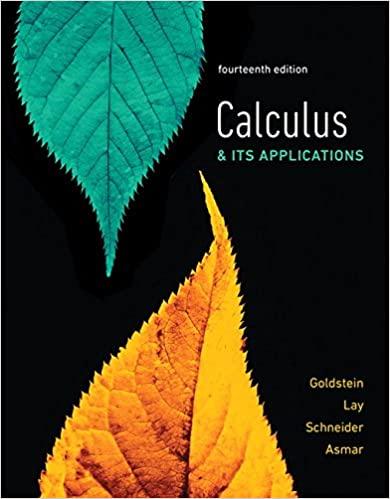In an autocatalytic reaction, one substance is converted into a second substance in such a way that
Question:
In an autocatalytic reaction, one substance is converted into a second substance in such a way that the second substance catalyzes its own formation. This is the process by which trypsinogen is converted into the enzyme trypsin. The reaction starts only in the presence of some trypsin, and each molecule of trypsinogen yields 1 molecule of trypsin. The rate of formation of trypsin is proportional to the product of the amounts of the two substances present. Set up the differential equation that is satisfied by y = f (t), the amount (number of molecules) of trypsin present at time t. Sketch the solution. For what value of y is the reaction proceeding the fastest?
Step by Step Answer:

Calculus And Its Applications
ISBN: 9780134437774
14th Edition
Authors: Larry Goldstein, David Lay, David Schneider, Nakhle Asmar





